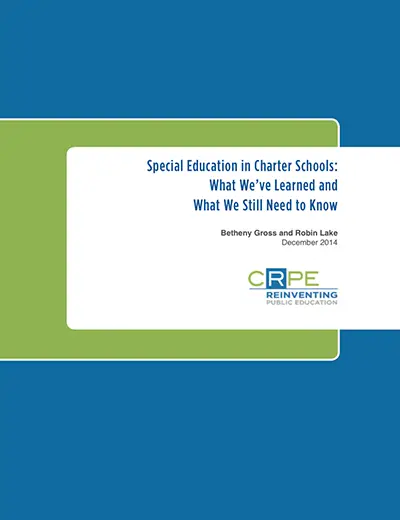According to national averages, charter schools serve fewer students with special needs than traditional public schools, leaving charters open to charges that they are exclusionary. Charter leaders counter that when special education enrollment rates are lower, it is often because charter schools are less likely to identify a child as needing special education services and more likely to address the child’s learning or behavior so that she or he can participate fully in the regular classroom environment.
To tackle such complex issues, CRPE teamed up with researchers across the country to launch a new research agenda devoted to students with special needs in charter schools. This report compiles our work of the past two years, which resulted in several important findings for the policy, practitioner, and research communities. And we outline several critical research and policy questions to be addressed.





